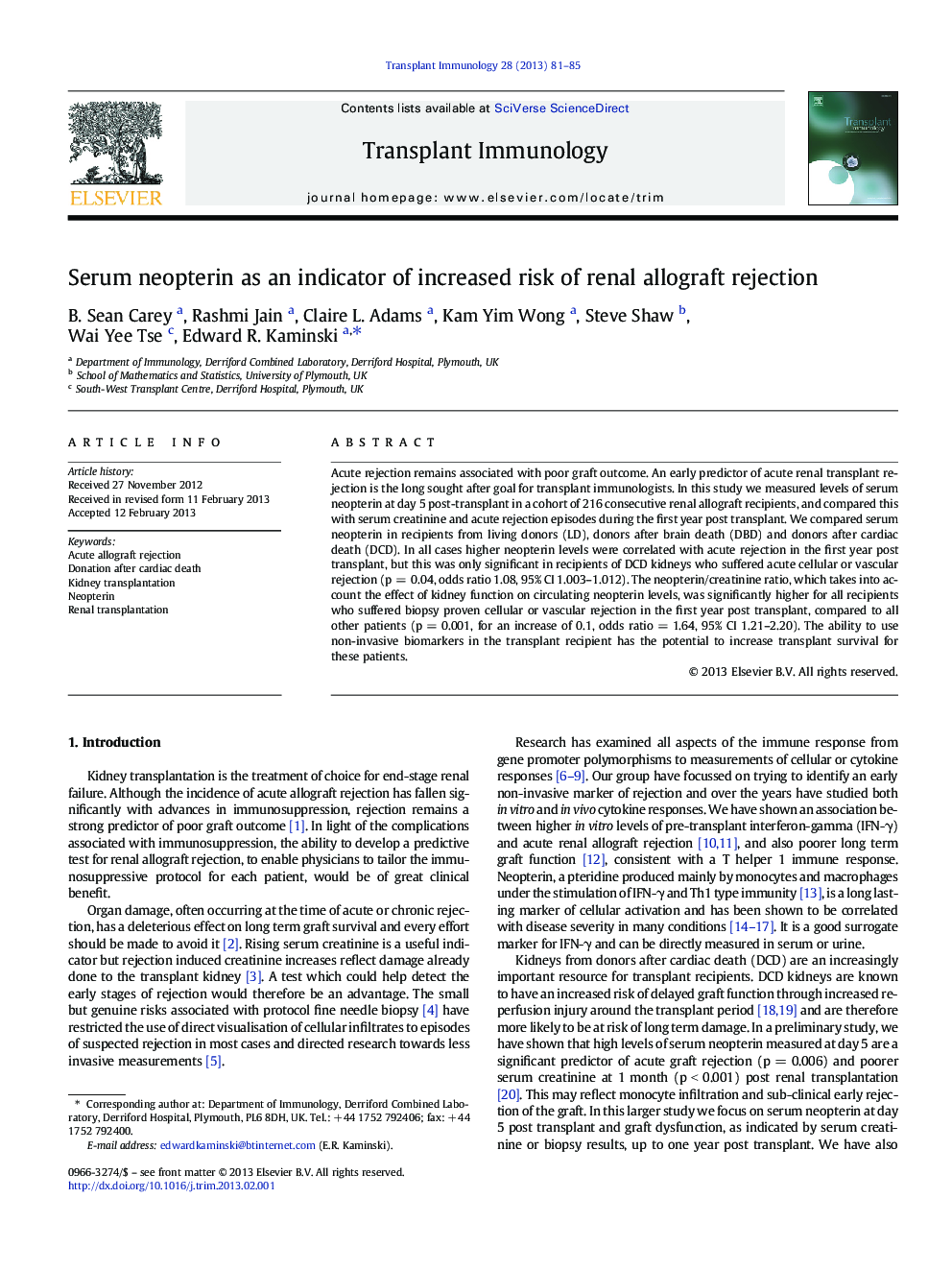| Article ID | Journal | Published Year | Pages | File Type |
|---|---|---|---|---|
| 3392154 | Transplant Immunology | 2013 | 5 Pages |
Acute rejection remains associated with poor graft outcome. An early predictor of acute renal transplant rejection is the long sought after goal for transplant immunologists. In this study we measured levels of serum neopterin at day 5 post-transplant in a cohort of 216 consecutive renal allograft recipients, and compared this with serum creatinine and acute rejection episodes during the first year post transplant. We compared serum neopterin in recipients from living donors (LD), donors after brain death (DBD) and donors after cardiac death (DCD). In all cases higher neopterin levels were correlated with acute rejection in the first year post transplant, but this was only significant in recipients of DCD kidneys who suffered acute cellular or vascular rejection (p = 0.04, odds ratio 1.08, 95% CI 1.003–1.012). The neopterin/creatinine ratio, which takes into account the effect of kidney function on circulating neopterin levels, was significantly higher for all recipients who suffered biopsy proven cellular or vascular rejection in the first year post transplant, compared to all other patients (p = 0.001, for an increase of 0.1, odds ratio = 1.64, 95% CI 1.21–2.20). The ability to use non-invasive biomarkers in the transplant recipient has the potential to increase transplant survival for these patients.
► Serum neopterin at day 5 post-transplant in 216 renal allograft recipients. ► Neopterin compared with creatinine and acute rejection one year post transplant. ► Neopterin/creatinine ratio correlated with acute rejection one year post transplant.
